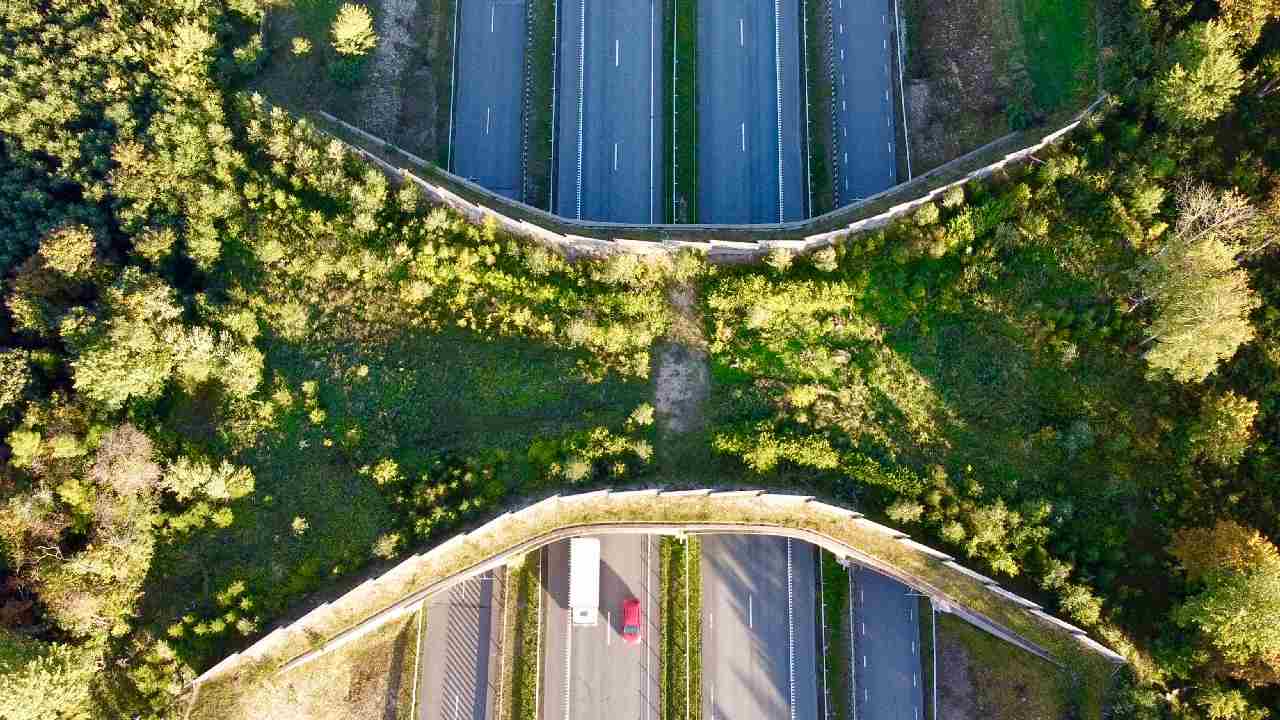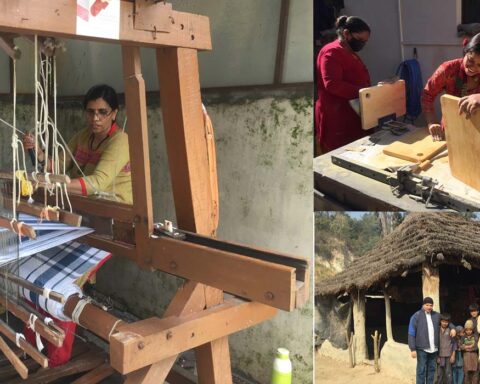No innovation in the globally warming world is complete without sustainability. The objective of being sustainable now reflects prominently in the way India builds its structures with the interest moving on LEED-rated green buildings to constructing public infrastructure using diverse waste, like plastic and steel, as raw materials. Here are five sustainable marvels – existing and upcoming – to visit and celebrate.
India’s First Steel Road in Surat, Gujarat
A road made with steel waste at the Hazira industrial area in Surat, Gujarat was unveiled on March 27. The road is sponsored by the Council of Scientific and Industrial Research (CSIR) and the Central Road Research Institute (CRRI) with help from the Ministry of Steel and Policy Commission and the NITI Aayog. The project also taps the Centre’s Waste to Wealth and Clean India Campaign.
The move is important, as 19 million tonnes of steel waste that is produced by different plants around the country each year and goes to landfills may now be used to make roads that not only use an unused resource, but also be more durable than other roads.
#Steelslag road built with 100 % processed steel slag aggregates in all layers of bituminous roads at Hazira, Surat in collaboration of @CSIRCRRI & @AMNSIndia under the R&D study sponsored by @SteelMinIndia. @NITIAayog @TATASTEEL @jswsteel @RinlVsp @NHAI_Official@CSIR_IND pic.twitter.com/dNHxxdnAZA
— CSIR CRRI (@CSIRCRRI) March 22, 2022
Waste to Wonder Park, Delhi
The South Delhi Municipal Corporation (SDMC) has turned a two-hectare landfill site into a park that hosts the replicas of world-famous monuments made of used scrap coming from a typewriter, grass cutter, drums, cycle rims, poles, pipes, iron bars, spare car parts and others. The result is outstanding imitations of the Taj Mahal, Eiffel Tower, Statue of Liberty, Leaning Tower of Pisa, Christ the Redeemer statue in Brazil, Great Pyramid of Giza, and Rome’s famous Colosseum.
The park in the Sarai Kale Khan area of New Delhi, barely 100 metres from Hazrat Nizamuddin Metro Station, displays the works of seven artists and nearly 60 workers. “The project has a strong message on recycling waste and gives access to people who do not have a chance to see the original monuments,” told an art executive in an interview.
In 2021, SDMC proposed to set up two parks at Jangpura and ITO on the lines of this waste-to-wonder park and a bird and animal hospital in Vasant Kunj.
View this post on Instagram
Mumbai-Nagpur Expressway, Maharashtra
An expressway being built keeping in mind wildlife is under construction in Maharashtra.
The Balasaheb Thackeray Samruddhi Mahamarg is going to be the first highway in India with nine green bridges or overpasses and 17 underpasses for wild animals to move. Estimated to cost ₹46,000 crores, the expressway will connect Nagpur to Mumbai and several industrial areas such as the Delhi-Mumbai Industrial Corridor (DMIC), Western Dedicated Freight Corridor (WDFC), dry ports of Wardha and Jalna, and India’s largest container port, JNPT.
It will be a “zero fatality” Mahamarg with CCTV surveillance and free telephone booths every 5 km to allow reporting in case of any accidents and emergencies, say reports.
Maharashtra | The Balasaheb Thackeray Samruddhi Mahamarg (expressway) is being constructed between Nagpur and Mumbai to be the first highway in India with nine green bridges (overpasses) and 17 underpasses for wild animal movements. pic.twitter.com/e08oHXBKaJ
— ANI (@ANI) March 23, 2022
Cochin International Airport, Kerala
Kerala’s Cochin International Airport Ltd (CIAL) is the first airport in the world that runs on solar power. In 2015, it became the first airport in the world to be fully powered by solar energy.
On 27 February 2022, with the commissioning of its new solar power plant near Payyannur, the plant’s cumulative installed capacity of CIAL has been scaled up to 50 MWp, generating 2 lakh units of power a day. As the airport’s daily consumption of power stands at 1.6 lakh units, the solar plants will help it leap one step forward from being a power-neutral airport to a power-positive airport.
Leaving Kochi after a rewarding group conference. The airport is compact, designed using local architectural motifs & is clean & efficient. The 1st private airport in the country, the 1st in the world to be fully solar powered. This is a model for ALL airports. 👏🏼👏🏼👏🏼 pic.twitter.com/m6sv7Hxh1x
— anand mahindra (@anandmahindra) December 4, 2021
Road Made with Plastic in Goalpara, Assam
Since 2001, experts like R. Vasudevan in India have been researching the feasibility of using plastics in the construction of roads. The Dean of Thiagarajar College of Engineering, Madurai, and his team tried mixing waste plastic with heated bitumen and coating the mixture over stone. When the laboratory results came out positive, the team began using plastic waste on a road constructed inside the college premises in 2002.
In 2006, the Thiagarajar College of Engineering received a patent for this technology. The plastic roads did not develop defects like potholes, rutting, ravelling or edge flaw, and were found more durable and cost-effective.
Under the Pradhan Mantri Gram Sadak Yojana (PMGSY), several implementing state-level agencies have utilised plastic waste as alternative road construction materials in various ways, says a paper part of ADB South Asia Working Paper Series in March 2020.
One road built with plastic waste is located in the Goalpara district of Assam.


























